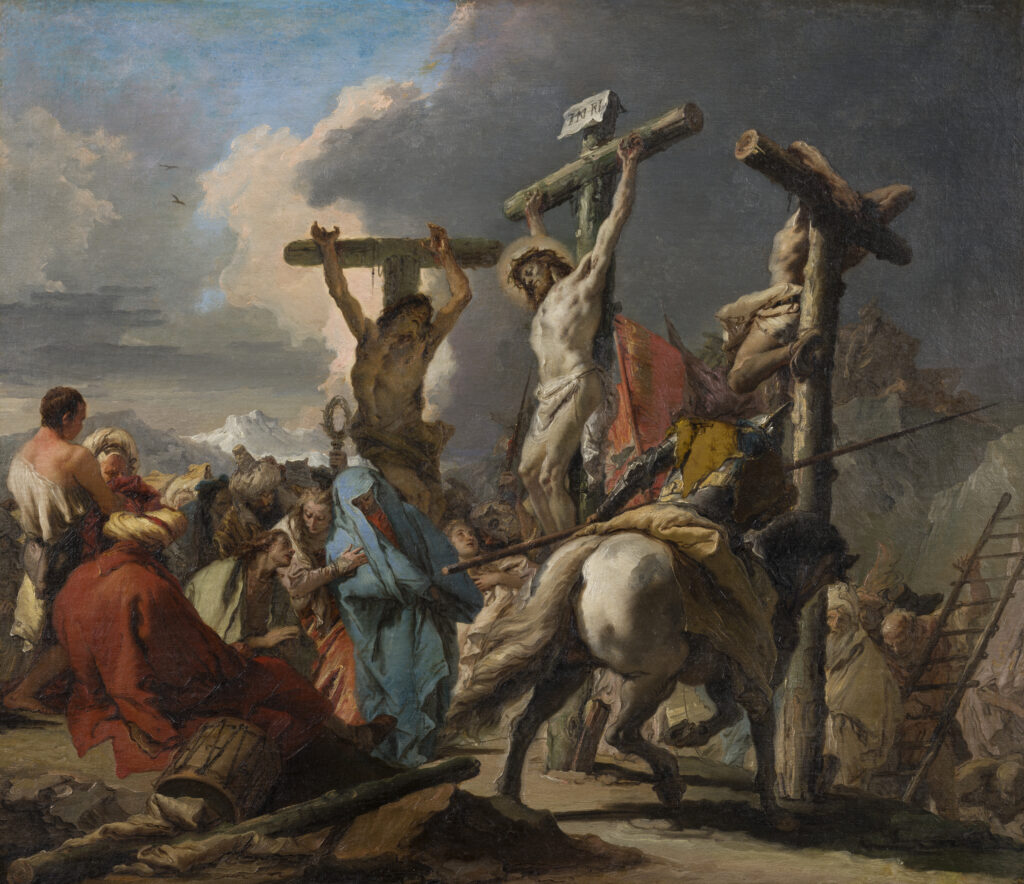Note: If you wish to receive, via e-mail, (1) my weekly newsletter or (2) daily copies of these posts, write to me at [email protected]. Comments may also be sent to this address. I promise not to share your e-mail with anyone. To unsubscribe, write here as well.
Good Friday
George Herbert’s magnificent sonnet “Redemption” is a good poem to read on Good Friday. I thought of it as I was reflecting on how Trump supporters are demonizing Hispanics these days, repeating what the administration says about them being terrorists and gang members. It appears that a mere accusation is all it takes for young Latinos to end up in a Salvadoran concentration camp. Certainly, none are receiving the due process dictated by the Constitution.
El Salvador, ironically, means “The Savior”–a reference to Jesus–and as I read the poem I imagine Christ being carted off to the Centro de Confinamiento del Terrorismo (CECOT). White House spokesperson Levitt and Attorney General Pam Bondi, who often wear gold crosses around their necks, have been making unproven claims about the criminality of many of those sent to CECOT.
In the poem, Herbert describes himself as the struggling tenant of a rich lord. Finding the lord absent from his manor house, he goes looking for him in all the places one would expect to find a rich lord. In the end, however, he finds him amongst thieves and murderers—which is to say, he finds him at the cross:
Redemption
By George Herbert
Having been tenant long to a rich lord,
Not thriving, I resolvèd to be bold,
And make a suit unto him, to afford
A new small-rented lease, and cancel th’ old.
In heaven at his manor I him sought;
They told me there that he was lately gone
About some land, which he had dearly bought
Long since on earth, to take possessiòn.
I straight returned, and knowing his great birth,
Sought him accordingly in great resorts;
In cities, theaters, gardens, parks, and courts;
At length I heard a ragged noise and mirth
Of thieves and murderers; there I him espied,
Who straight, Your suit is granted, said, and died.
Throughout his poetry, Herbert often agonizes over the fact that he finds it difficult to open his heart to God. (“A heart alone/Is such a stone,” he writes in “The Altar.”) In this poem, he may be referring how he himself once sought worldly advancement “in cities, theaters, gardens, parks, and courts” before becoming an Anglican rector. In any event, he must turn from worldly affairs and find the true heart of Christ if he is to be saved from sin.
The central paradox of Christianity is that God’s divinity was manifested in a lowly human who died a humiliating criminal’s death. It is by identifying with the marginalized and disenfranchised Jesus that Herbert reconnects with his heart. If Herbert were with us today, he would tell us we won’t find God in the halls of power and in the homes of billionaires.
Herbert may have in mind Jesus’s words (Matthew 25:40), “Truly I tell you, whatever you did for one of the least of these brothers and sisters of mine, you did for me.” If only those who wear gold crosses around their necks would open their own hearts.


